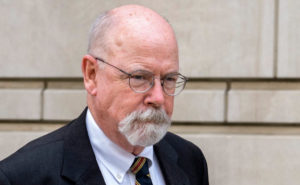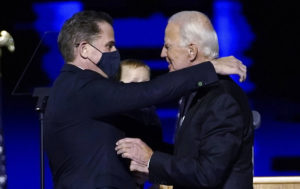A batch of emails obtained through a Freedom of Information Act request by The Daily Wire sheds light on the ways in which Hunter Biden’s business partner, Eric Schwerin, leveraged his federal position during the Obama administration to establish connections with an Eastern European company that Hunter was interested in joining. Schwerin, appointed by President Barack Obama to the Commission for the Preservation of America’s Heritage Abroad in 2015, was able to present himself as a U.S. official, using his position to negotiate with Eastern European countries on matters related to Holocaust-era cemeteries.
The Commission’s mandate to preserve heritage abroad and its connection to raising funds from private interests created an environment that intersected with Hunter and Schwerin’s business dealings in Eastern Europe. Schwerin attempted to secure acknowledgment for a Latvian bank on a Commission project’s plaque, around the same time that Hunter was seeking a board seat on the company’s board. While the donation plans faltered due to anonymity concerns, the overlap between Schwerin’s activities and Hunter’s business aspirations raises questions about the ethical boundaries of their actions.
Schwerin’s appointment to the Commission came less than a year after he informed Hunter about it. Emails from Hunter’s laptop revealed this timeline and showcased Schwerin’s efforts to weave his business connections with Hunter’s political influence. Schwerin’s role as managing director of Hunter’s firm, Rosemont Seneca Partners, further underscored their intertwined interests in the Eastern European region.
Schwerin’s association with Norvik Bank, a Latvian bank, raised eyebrows as Hunter’s business partner, Devon Archer, was a shareholder of Norvik Bank, and Hunter aimed to secure a lucrative board seat. The emails indicate that Schwerin, Hunter, and their lawyer strategized about placing Hunter on Norvik’s board without contradicting prior statements to the Department of Justice. Hunter’s involvement in Schwerin’s Commission work was evident, including assistance in editing speeches and correspondence about memorial projects.
The Commission’s handling of FOIA requests for records related to this story raised concerns of non-compliance. Its reluctance to release documents until litigation loomed and its lack of cooperation with the FOIA process raised questions about transparency and accountability. The Commission’s history of corruption, as highlighted by The New York Times in 2015, further raises concerns about its activities.
The case sheds light on the complexities of individuals using federal positions to advance personal business interests, particularly when those interests overlap with international relations and private ventures. The emails and activities of Schwerin and Hunter reflect the ethical gray areas that can arise in such scenarios, prompting discussions about accountability, transparency, and conflicts of interest within the context of government appointments.





